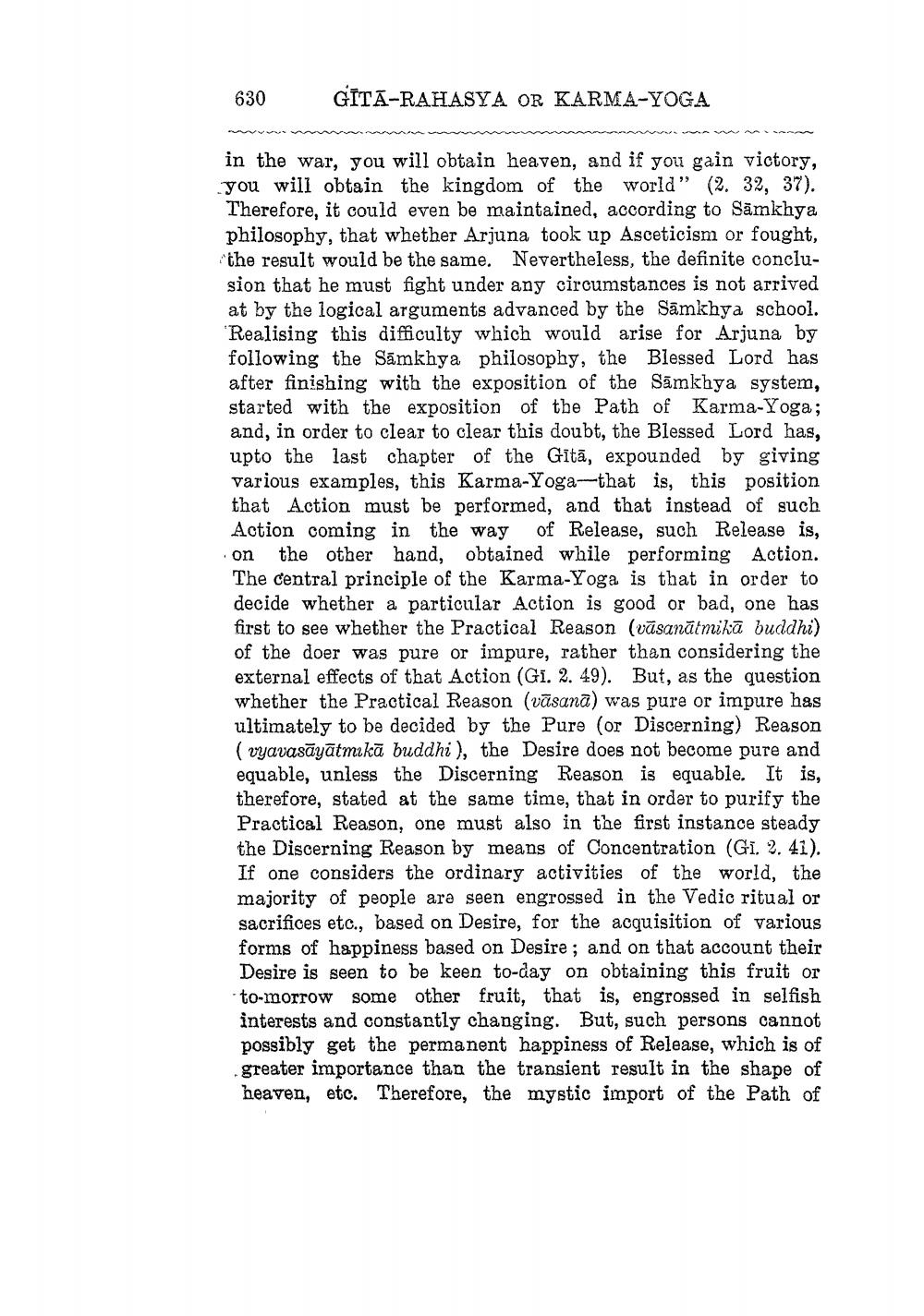________________
630
GÍTA-RAHASYA OR KARMA-YOGA
in the war, you will obtain heaven, and if you gain victory, you will obtain the kingdom of the world” (2. 32, 37). Therefore, it could even be maintained, according to Sāmkhya philosophy, that whether Arjuna took up Asceticism or fought, the result would be the same. Nevertheless, the definite conclusion that he must fight under any circumstances is not arrived at by the logical arguments advanced by the Samkhya school. Realising this difficulty which would arise for Arjuna by following the Sāmkhya philosophy, the Blessed Lord has after finishing with the exposition of the Sāmkhya system, started with the exposition of the Path of Karma-Yoga; and, in order to clear to clear this doubt, the Blessed Lord has, upto the last chapter of the Gitā, expounded by giving various examples, this Karma-Yoga--that is, this position that Action must be performed, and that instead of such Action coming in the way of Release, such Release is, on the other hand, obtained while performing Action. The central principle of the Karma-Yoga is that in order to decide whether a particular Action is good or bad, one has first to see whether the Practical Reason (vāsanātmikā buddhi) of the doer was pure or impure, rather than considering the external effects of that Action (Gi. 2. 49). But, as the question whether the Practical Reason (vāsana) was pure or impure has ultimately to be decided by the Pure (or Discerning) Reason ( vyavasāyātmikā buddhi), the Desire does not become pure and equable, unless the Discerning Reason is equable. It is, therefore, stated at the same time, that in order to purify the Practical Reason, one must also in the first instance steady the Discerning Reason by means of Concentration (Gi. 2. 41). If one considers the ordinary activities of the world, the majority of people ara seen engrossed in the Vedic ritual or sacrifices etc., based on Desire, for the acquisition of various forms of happiness based on Desire; and on that account their Desire is seen to be keen to-day on obtaining this fruit or to-morrow some other fruit, that is, engrossed in selfish interests and constantly changing. But, such persons cannot possibly get the permanent happiness of Release, which is of greater importance than the transient result in the shape of heaven, etc. Therefore, the mystic import of the Path of




